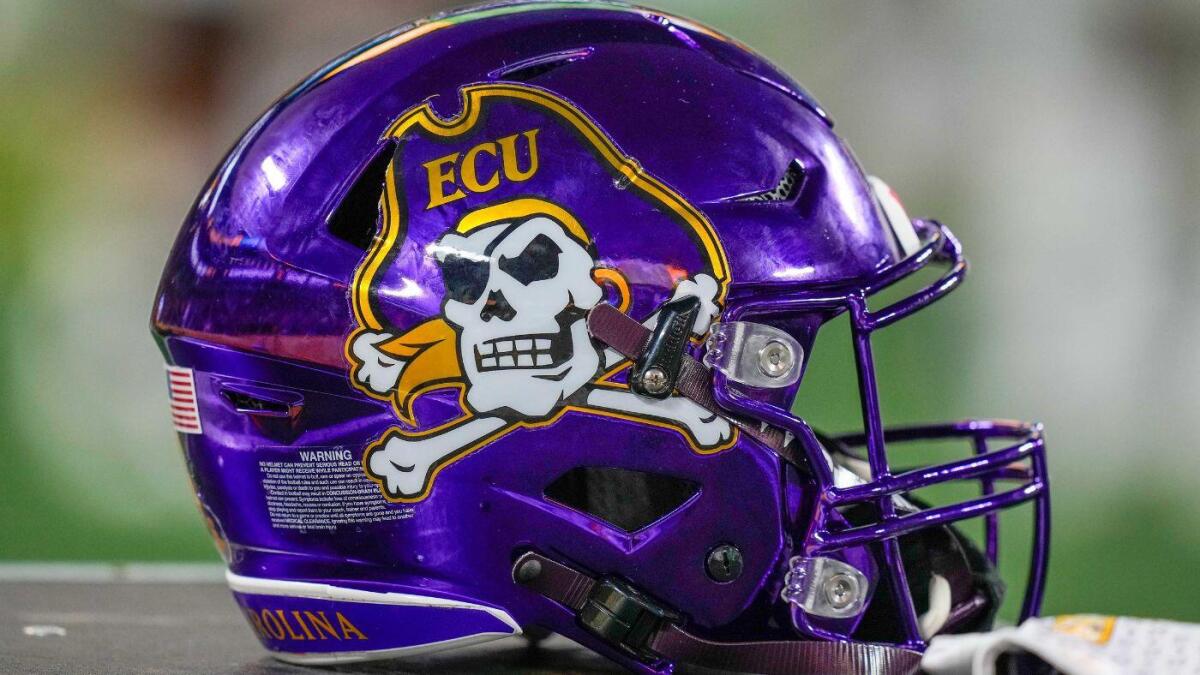The East Carolina University Football Players’ Suspension: A Critical Analysis
Introduction
The recent suspension of three East Carolina University (ECU) football players—J.D. Lampley, Preston Carr, and Brock Spalding—following their arrest for discharging a firearm within Greenville city limits has sparked widespread discussion. This incident is not just a legal matter but a critical juncture for the university, the football program, and the broader community. The consequences extend beyond the courtroom, touching on team discipline, public perception, and the future of collegiate athletics. This report delves into the incident, its implications, and the path forward.
The Incident and Arrest
On the early morning of July 20th, Greenville Police responded to a “shots fired” call at a residence near the ECU campus. Upon arrival, officers found evidence of gunfire and arrested the three players. All three were charged with discharging a firearm within city limits, a misdemeanor. Brock Spalding faced an additional charge of resisting, delaying, and obstructing a public officer. Reports suggest the players admitted to firing a gun into the air, fortunately without causing injuries. The incident, though minor in legal terms, carries significant weight due to the players’ status as student-athletes.
The Players Involved
The suspended players—J.D. Lampley, Preston Carr, and Brock Spalding—are key members of the ECU football team. Lampley and Carr are defensive linemen, while Spalding is a wide receiver. Their experience and contributions to the team make their suspension a substantial setback. The loss of these players, even temporarily, disrupts team dynamics and raises questions about leadership and discipline within the program.
University Response and Suspension
ECU Athletics responded swiftly, issuing a statement confirming the players’ indefinite suspension. This action underscores the university’s commitment to upholding standards of conduct. An indefinite suspension typically means the players are barred from all team activities until further notice. The duration of the suspension will depend on the outcome of the legal proceedings and the university’s internal review.
Legal Ramifications and Potential Penalties
The primary charge—discharging a firearm within city limits—is a misdemeanor. Penalties may include fines, community service, or short jail sentences. Spalding’s additional charge could exacerbate the consequences. Beyond legal repercussions, the players may face disciplinary action from the university, ranging from probation to expulsion. The severity of these penalties will hinge on the findings of the internal investigation.
Impact on the ECU Football Program
The suspension of three players during the off-season is a significant blow to the ECU football program. The loss of two defensive linemen weakens the team’s defensive line, while Spalding’s absence limits the passing game. Beyond roster challenges, the incident raises concerns about team culture. Head Coach Mike Houston must address the issue with the team, emphasizing responsible behavior and adherence to team rules. The coaching staff will need to adapt quickly to fill the void left by the suspended players and maintain team morale.
Public Perception and University Image
This incident has the potential to tarnish the image of ECU and its football program. Negative publicity can erode public trust and reinforce stereotypes about collegiate athletes. To mitigate the damage, ECU must communicate transparently about the steps being taken to address the situation. Highlighting the university’s commitment to responsible behavior and the positive contributions of its student-athletes can help restore public confidence.
Past Incidents and Program History
While specific details about past incidents are not available, it is essential to consider this event within the broader context of ECU football’s history. Has the program faced similar issues before? Are there existing policies to address player misconduct? Understanding the program’s track record can provide valuable insights into the current situation and inform the university’s response.
The Broader Context of Collegiate Athlete Conduct
This incident is part of a larger national conversation about the conduct of collegiate athletes. High-profile cases at other universities have raised concerns about the pressures faced by student-athletes and the role of universities in shaping their behavior. This event serves as a reminder of the challenges involved in managing athlete conduct and the importance of providing support and guidance.
Moving Forward: A Call for Accountability and Education
The suspension of the three ECU football players is a pivotal moment for the university and its athletic program. It underscores the importance of accountability, responsible behavior, and ongoing education for student-athletes. ECU should review its policies and procedures related to athlete conduct, assessing the effectiveness of existing programs and disciplinary measures. New initiatives to promote responsible behavior and address athlete challenges should be considered.
The university must also work closely with the football program to reinforce the values of integrity, accountability, and sportsmanship. The coaching staff should serve as role models, emphasizing the importance of team discipline and respect for the law. The future success of the ECU football program depends on its ability to cultivate a culture of responsibility and integrity.
A Turning Point?
The actions taken in the aftermath of this incident will define the immediate futures of the suspended players and the long-term trajectory of the ECU football program. Will this be a moment of reckoning, leading to meaningful change and a renewed focus on character development? Or will it be viewed as just another isolated incident? The answer lies in the commitment of the university, the athletic department, and the players themselves to learn from this experience and strive for a higher standard of conduct. The path forward is clear: accountability, education, and a collective commitment to excellence both on and off the field.

